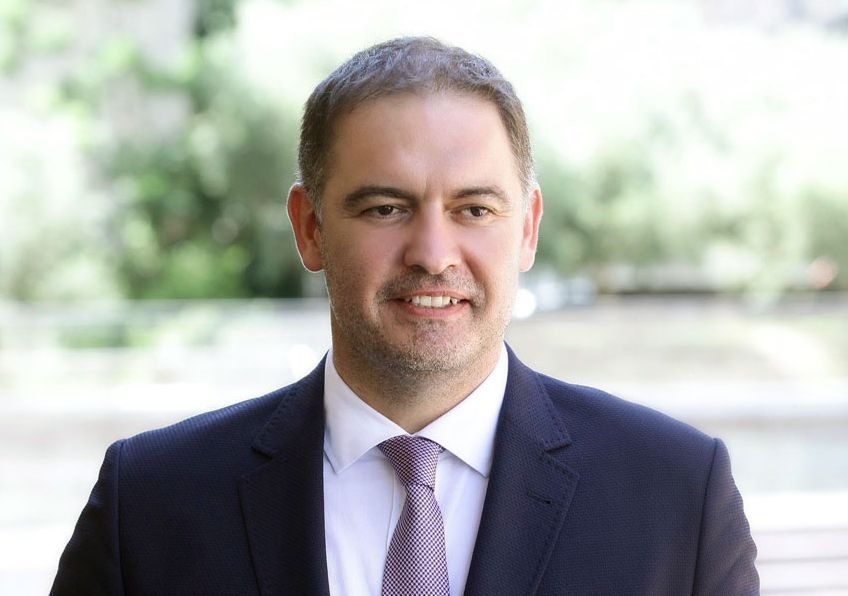Op-Ed: ‘Decisions for Tourism will Need to be Strategically Flexible’ – Alexandros Vassilikos
As the world awaits for the restart of tourism in the post-coronavirus era, the president of the Hellenic Chamber of Hotels, Alexandros Vassilikos, takes a step back and analyzes what we have learned from the industry’s evolution over the past decades.
At the dawn of a new era that awaits for the rebirth of tourism, it is very important to take a step back and contemplate the actual data and trends as they shape around us. Furthermore, we need to take a serious look at the path we have followed over the past decades that have undoubtedly shaped a constantly growing industry around hospitality. From early models in the ’70s and ’80s that allowed for people to travel at a totally different pace, speed and price than before up to latest trends such as digital nomads or staycation, what has our industry’s evolution taught us?
First of all, I believe that tourism answers a fundamental human need rather than creates a consumer need. The need to socialize, to explore other civilizations through culture or taste, the need to open up and discover, known from ancient times.
This characteristic is probably also the answer to the resilience we have seen in tourism. After any crisis, whether it’s a war, an economic or natural disaster, tourism arises again in the vast majority of cases. The positive aspects of the economic and social impact of tourism are undeniable in terms of growth, job creations, fight against social inequalities or racism and so on… Often offering unique opportunities of growth to countries or regions that have not found their place – or refuse to participate – in other global trends such as industrialization.
‘Identifying the characteristics of our product and seeing if and how they fit with the existing trends is the first step to take. We need to know where we are before we set a course to where we want to go.’
But are there only positive aspects to the tourism models we have seen so far? Of course not, tourism also faces crucial challenges. I wouldn’t necessarily associate them with the post-Covid-19 era since I believe these challenges were present before. They just became more prominent over the past year or so.
Identifying the characteristics of our product and seeing if and how they fit with the existing trends is the first step to take. We need to know where we are before we set a course to where we want to go. For instance, the fact that Greek hotels are small and fragmented, averaging a low 42 rooms was always considered as a weakness. Nevertheless, it might sooner than later turn into a strength.
Again, let’s not jump to conclusions too fast by predicting the extinction of charter flights or all-inclusive hotels. Such abrupt changes, although present in the public dialogue, will not happen, not overnight anyway. So what changes lie ahead? Obviously it is difficult to answer this without a crystal ball but it is worth identifying the characteristics that will influence our decisions in the future.
How will humanity react to a “year off” as a whole? Will humanity show its inspiring historical ability to question its own values and transform itself or will it rather underline its disappointing habit to forget and stay in its comfort zone? What decisions will it take? Will we see the return to a healthier rural life and therefore urban exodus? A brake in the consumption chains as we know them?
There is obviously no black or white answer to these questions. The answers will reflect many shades of grey depending on geography, level of education, social background and level of income. But you can easily attempt to answer these questions by taking a look around you. How many people have taken life altering decisions compared to how many just await to “come back to normality”? I am certain you will find a disturbing majority…
Trends will certainly be accelerated through different processes such as the immense amounts of money that are dedicated to the recovery plans in different parts of the world. Because of this acceleration process fueled by funding, it is fair to expect an even faster pace of changes.
Obviously sustainability and digital transformation will be major actors. The ones who will be able to grasp this and include them in their growth model will have a huge competitive advantage. At a company level as well as at a regional or national level, the process is the same.
‘…Our biggest challenge is that our decisions from now on will need to be strategically flexible in order to permit constant adaptation to the speed of change in business models.’
So if we agree that the changes that we will see in the near future will mostly follow trends we had identified up to 2019, what are we to expect?
We all remember our parents stating “nowadays, we used to do things differently…” or their parents before them. What is undeniably different today is not evolution itself, but it is the speed of evolution that creates gaps within generations and not from one generation to another as it used to. I believe that our biggest challenge is that our decisions from now on will need to be strategically flexible in order to permit constant adaptation to the speed of change in business models. This is a huge difference compared to the decisions that used to be taken up until now and followed for years or more often for decades. Such business models are obsolete and will be disrupted constantly in a world where disruption will rapidly become the new evolution.





